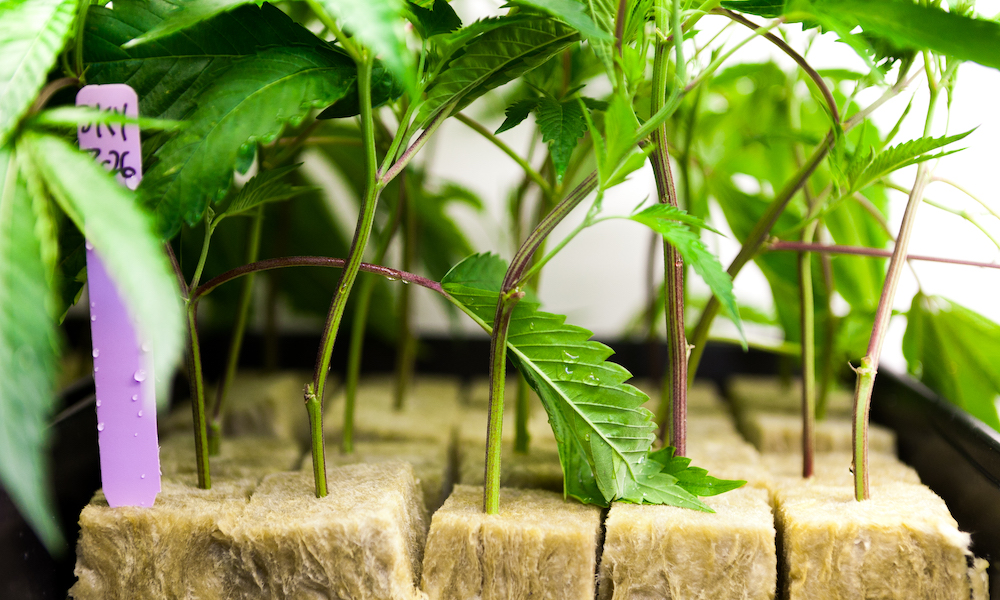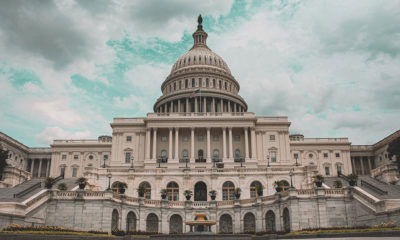On Tuesday, a bipartisan coalition of 30 members of Congress asked U.S. Attorney General William Barr to give them answers on the current effort, or lack thereof, to expand marijuana research inside the United States.
The effort was led by presidential candidate Rep. Eric Swalwell of California, with support from Reps. Matt Gaetz and Steve Cohen. The group noted some had previously written to the Department of Justice and the DEA last September, when the DOJ was under the leadership of Jeff Sessions, stressing that they had to write again because “the matter is of such importance.”
The coalition of representatives asked the DOJ about the domestic delay in approving manufacturers of research-grade marijuana in the U.S., especially considering that Sessions previously allowed the DEA to approve imports from Canada specifically for research. (At the time, the congressional members also noted that “adding insult to injury” was the fact a University of California school had not received approval for cannabis samples from the federal government, but another University of California school eventually receive the Canadian imports.)
Now, eight months removed from the original letter, the language Congress is using to talk pot with the embattled Barr appears to be a bit firmer than the language they used with his predecessor. With Barr, the letter started with the fact that the FDA has approved a medicine derived from the cannabis plant means there is clear proof that we need better access to research-grade medicine grown in the United States.
“The application process to research cannabis is one that is arduous and long.”
“Unfortunately, the federal government stands in the way,” the letter to Barr read. “The application process to research cannabis is one that is arduous and long. First, one who wishes to engage in this research must at the very least work with three separate federal entities: the National Institute on Drug Abuse (NIDA), DEA, and FDA. Approval is required by DEA, which involves a site inspection, and FDA. This is not including any involvement by governments at the state or local level.”
The second problem the letter addressed was that the Universitiy of Mississippi has the only cannabis grow that can provide flower to the U.S. research community. From Congress’s understanding, there are a lot of delays “and the cannabis itself is generally regarded as having poor quality.”
In addition to the subpar quality, the letter noted UMiss does not provide individual cannabinoids: “It is thus not surprising that those who want to research cannabis are frustrated. Some wait months or even years to have their applications approved. And then they have to deal with raw materials that do not always lend themselves to proper research.”
The one optimistic point of the letter was that the representatives were happy with the actual streamlining of the DEA’s application process, but that’s about it. They noted John Hudak of the Brookings Institute says the updated application process was “just a drop in the bucket” of what needed to be done by Congress. The letter admitted that the DEA has increased the annual quota for the amount of cannabis being produced, but that won’t remedy all the other bottlenecks in the process.
Congress wants to know what Barr is considering modifying in the application process so it’s faster and also asked what additional resources they could provide to get the ball rolling. They left him with four questions they’ve previously asked and have yet to receive an answer on.
1. What is the current status of the 26 cannabis manufacturer applications? How long has each been pending before DOJ and DEA?
2. What steps have the DEA and DOJ taken to review the cannabis manufacturer applications currently pending? What are the reasons these applications have not been approved?
3. When do you estimate the DEA and DOJ will complete their review of all of the cannabis manufacturing applications and begin approving some as new manufacturers?
4. In the past 12 months, excluding Schedule I Bulk Manufacturer registrations for cannabis, how many other DEA registrations has DOJ reviewed?
The members of Congress who signed the letter say they look forward to Barr’s prompt response. It appears unlikely that they will receive one.
TELL US, do you think the government should approve more cannabis research?
























